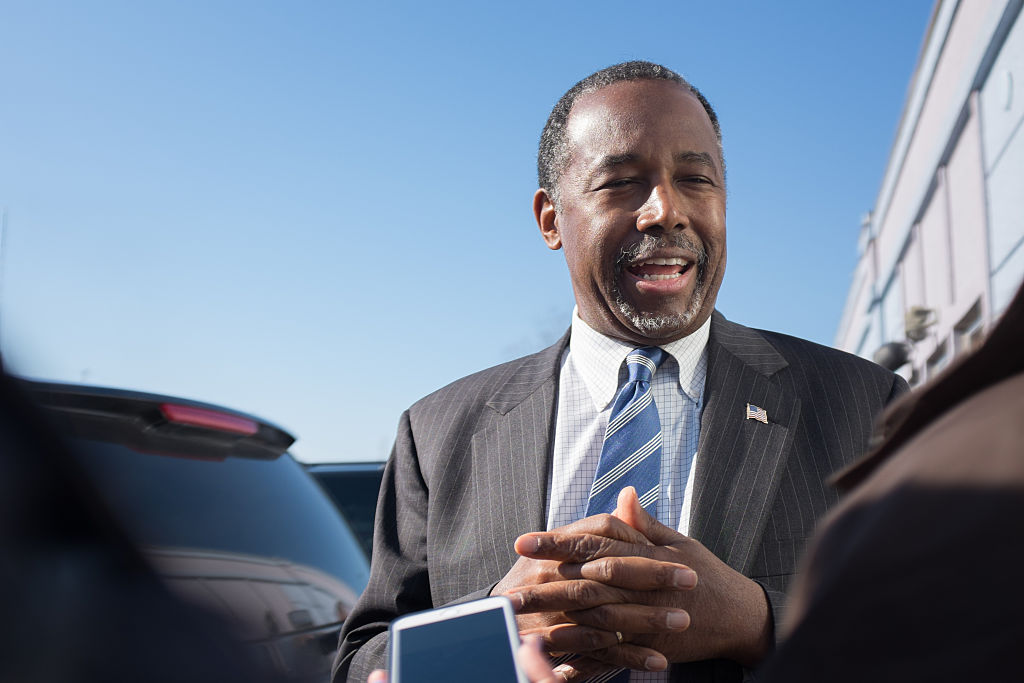
If there was one thing Ben Carson was exceptionally good at as a candidate, it was raising money.
The former neurosurgeon’s campaign raised more than $57 million for the 2016 election cycle, more than any other Republican candidate’s campaign. Following Carson is Texas Sen. Ted Cruz, whose campaign raised just over $54 million. Former Florida Gov. Jeb Bush raised just $33.5 million directly for his campaign.
And that’s not even counting what was raised by super PACs.
According to the Center for Responsive Politics, there were four super PACs dedicated to Carson. One of them, the National Draft Ben Carson Committee, became active in 2013 and initiated a groundswell of support for a Carson candidacy. A TIME investigation that year into the committee found that much of its fundraising success came from what reporter Alex Altman described as “a well-honed formula: renting and expanding email lists, beseeching supporters for cash through email and the postal service, and then reinvesting big chunks of the proceeds in ever more appeals to activists.”
The Center for Responsive Politics shows that the Draft PAC raised $13.5 million during the 2014 cycle, helping propel Carson into his candidacy. All the Super PAC proceeds from the 2016 cycle came to another $13.8 million, which includes $10 million from the 2016 Committee, the successor to the Draft PAC.
All told, Carson super PACs raised $27.4 million towards his election effort. Combined with the hard money donated to Carson’s campaign, that comes out to $85 million.
Now after Carson has effectively ended his campaign, where does all that money go?
In the case of the campaign, much of it has already been spent. As of the end of January, the campaign spent $53.7 million of the $57.9 it had raised, leaving just $4.2 million on hand.
A Carson campaign spokesman was mum on the subject of where the rest of the money would go, pointing out that the campaign hasn’t officially been suspended yet and saying to “stay tuned.”
John Philip Sousa IV, who has led the PAC efforts on behalf of Carson since he first formed the Draft Committee in 2013, says the 2016 Committee has also already spent almost all the money it raised, estimating there is only about $200,000 left in the bank. As for what happens to that money, Sousa said the group will take its lead from Carson.
“If he says he wants to run for the open seat for the Senate in Florida, then we’ll be a Super PAC and use the money for that,” Sousa told TIME, referencing recent reports that some hope to draft him for that campaign. “If he washes his hands of the political system and says I’ve had it, it’s too corrupt, it’s too dishonest … we’ll do an anti-Hillary PAC or something to try to influence the outcome in November.”
But behind all of this are the donors, the many thousands of people who gave $50 or $100 in hopes of sending the soft-spoken neurosurgeon from Detroit to the Oval Office. (As of October, 74% of Carson’s campaign money came from small dollar donations of under $200. The only candidate with a higher proportion of small donations was Vermont Sen. Bernie Sanders.)
In the world of direct mail marketing that launched Carson to the candidacy in the first place, the role of these donors isn’t over yet, although they may not know that. According to the Center for Public Integrity, Carson’s campaign amassed a list of more than 700,000 donors. Carson’s team can now rent this list out to other campaigns or committees for what one head of a direct response marketing firm estimated at $5 or $6 per name.
“God bless you Dr. Carson,” one supporter wrote on Carson’s official Facebook page in response to his post saying he does not see a path forward in the race. “You are an amazing man, and it has been an honor supporting you (financially, and otherwise).”
“The day after the prayer breakfast, I started posting RUNBENRUN for President,” wrote another. “I have donated $$$ that we could ill afford, I have shared on social media, I have supported you however I could… God Bless you! I know He’s not done with you yet! Neither am I!!!”
More Must-Reads from TIME
- Cybersecurity Experts Are Sounding the Alarm on DOGE
- Meet the 2025 Women of the Year
- The Harsh Truth About Disability Inclusion
- Why Do More Young Adults Have Cancer?
- Colman Domingo Leads With Radical Love
- How to Get Better at Doing Things Alone
- Michelle Zauner Stares Down the Darkness
Write to Tessa Berenson Rogers at tessa.Rogers@time.com